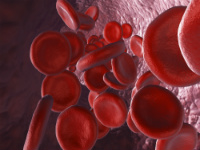Correction
This article was corrected on December 16, 2016.
The original article summary of the article on the use of pregabalin in adults with fibromyalgia read, "This Cochrane review included over 3,000 patients with fibromyalgia treated with 300-600 mg of pregabalin with assessment at 2 to 3 months after the start of treatment." The doses were revised to read "150 to 600 mg of pregabalin." The following sentence, which originally read, "At least a 50% improvement of symptoms occurred in 14% of patients on placebo and 23% on pregabalin; moderate benefit (30% improvement), in 28% versus 39%, respectively.", was also revised and expanded to say, "At least a 50% improvement of symptoms occurred in 14% of patients on placebo and 23% on 300 to 600 mg of pregabalin; moderate benefit (30% improvement), in 28% versus 39%, respectively. The dose of 150 mg of pregabalin per day was not clearly beneficial."
Below are the 3 articles selected as suggested reading for this week by McMaster editors.
Genetic risk, healthy lifestyle, and risk of coronary events
Unfavorable genes may double the risk of coronary artery disease (CAD) events, while healthy lifestyle may lower it by half.
This study combines data from 3 cohorts of people without CAD at baseline. The genetic predisposition was established on the basis of an analysis of 50 previously identified genetic markers associated with the occurrence of CAD (of note, genetic predisposition was only moderately correlated with low-density lipoprotein cholesterol level and family history of CAD). Healthy lifestyle factors included absence of current smoking, absence of obesity (body mass index <30), regular exercise (at least once a week), and healthy eating (following at least half of the principles of a healthy diet, which include consumption of an increased amount of fruits, nuts, vegetables, whole grains, fish, and dairy products, and a reduced amount of refined grains, processed meats, unprocessed red meats, sugar-sweetened beverages, trans fats, and sodium).
Among 55,685 observed people, the risk of a CAD event (myocardial infarction, coronary revascularization, or death from coronary causes) was almost doubled among the participants in the highest genetic risk quartile in comparison to those in the lowest genetic risk quartile (hazard ratio [HR], 1.91; 95% confidence interval [CI], 1.75-2.09). On the other hand, a favorable lifestyle (defined as the presence of at least 3 of the 4 healthy lifestyle factors) was associated with a substantially lower risk of coronary events than an unfavorable lifestyle, defined as no more than one healthy lifestyle factor (HR, 0.54; 95% CI, 0.47-0.63).
Pregabalin and pain in adults with fibromyalgia
Out of 10 patients with fibromyalgia, one additional will experience substantial benefits associated with the use of pregabalin.
This Cochrane review included over 3,000 patients with fibromyalgia treated with 150 to 600 mg of pregabalin with assessment at 2 to 3 months after the start of treatment. At least a 50% improvement of symptoms occurred in 14% of patients on placebo and 23% on 300 to 600 mg of pregabalin; moderate benefit (30% improvement), in 28% versus 39%, respectively. The dose of 150 mg of pregabalin per day was not clearly beneficial. Serious adverse events occurred with similar frequency on placebo and active treatment, but some less serious events were more common in the pregabalin group (dizziness in additional 25% of patients, somnolence in additional 13%, weight gain and peripheral edema in ~5%).
Celecoxib, ibuprofen, naproxen and the risk of CV events
Celecoxib, a selective cyclooxygenase-2 (COX-2) inhibitor, is not associated with more cardiovascular events than ibuprofen or naproxen.
After the withdrawal of the selective COX-2 inhibitor rofecoxib in 2004, the Food and Drug Administration allowed marketing of celecoxib but mandated a cardiovascular safety trial. The resulting international study involved over 24,000 patients (~90% with osteoarthritis and ~10% with rheumatoid arthritis) who on average used 209 mg of celecoxib daily versus 852 mg of naproxen versus 2,045 mg of ibuprofen. The patients either had established cardiovascular disease or had an increased risk of such (eg, history of hypertension was present in ~78% of patients, dyslipidemia in ~62%, smoking in ~21%, diabetes mellitus in ~35%). Almost half of the patients received additionally acetylsalicylic acid. The mean duration of treatment was 20 months, and all patients received a proton pump inhibitor as gastrointestinal prophylaxis.
The incidence of the primary outcome (cardiovascular death, including death from hemorrhage; nonfatal myocardial infarction; and nonfatal stroke) was similar among the groups (2.3% on celecoxib, 2.5% on naproxen, 2.7% on ibuprofen). The incidence of serious gastrointestinal events, iron deficiency anemia, and renal events was low and numerically lowest on celecoxib (in some instances, the differences were statistically significant).
 English
English
 Español
Español
 українська
українська





